Here are some examples of applying Sustainability in our day-to-day practices.
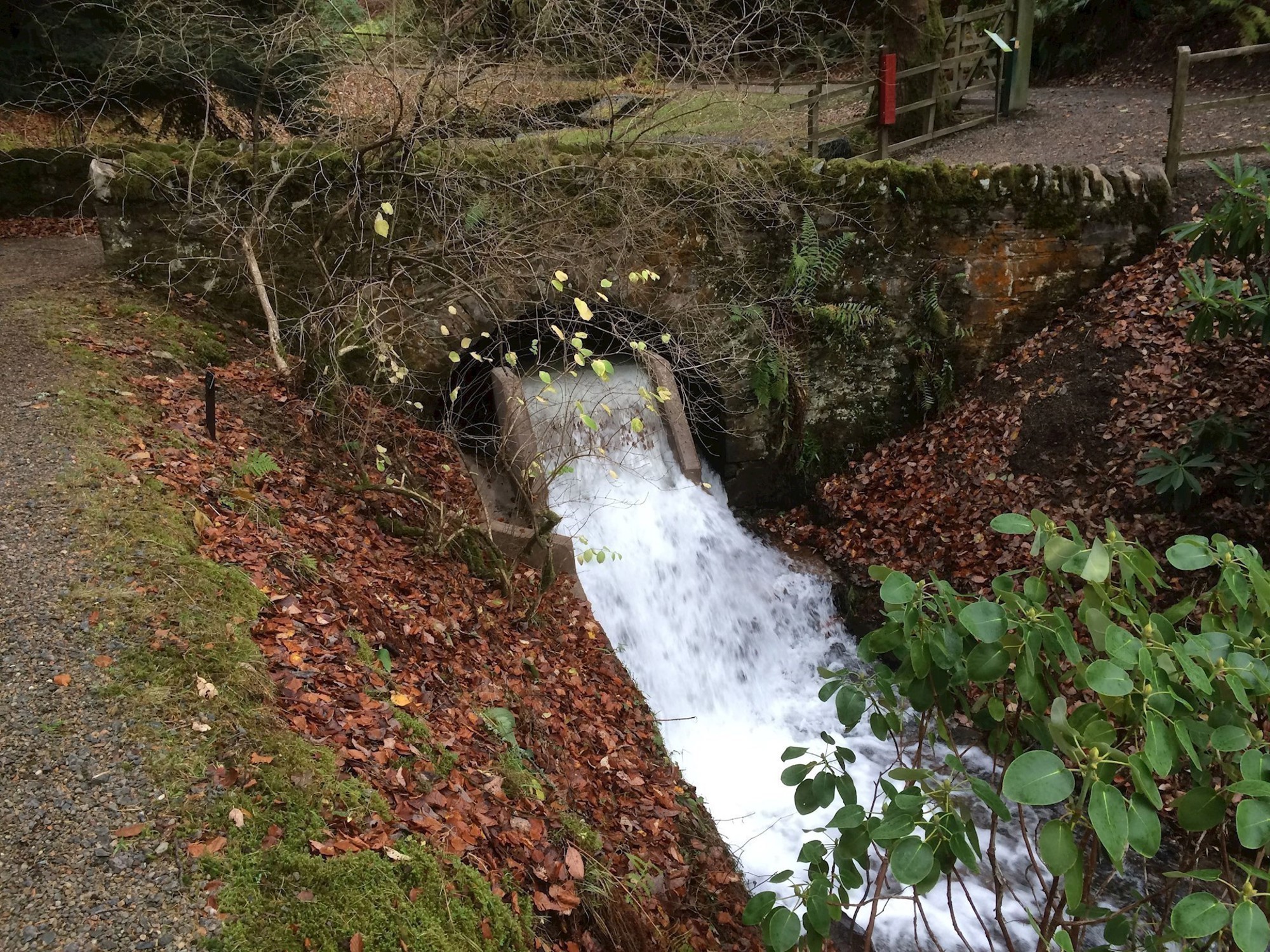
Looking after our plants
Air-Pot®
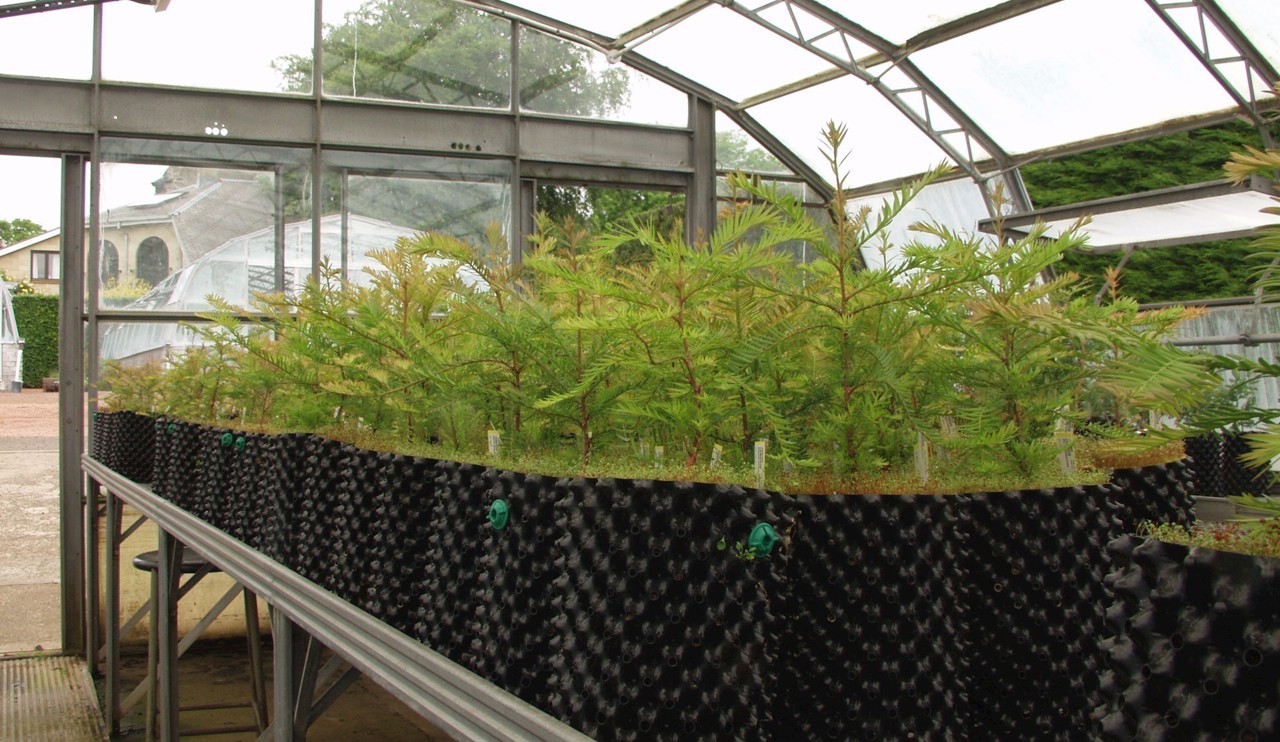
Plants in Air-Pot®
We use Air-Pot® which enable the plants to form a good rootball, aiding establishment when planted out. These pots are 95% recycled and made locally in Midlothian, Scotland.
Read more in Sibbaldia.
Peat
Peat is formed from decaying plants in cool wet areas over thousands of years. Peat bogs are a unique and important habitat for the species which have adapted to survive in the conditions and do not live anywhere else. Peat has long been considered to be the ‘perfect’ growing medium by horticulturists, being moisture retentive, high in organic matter content and easy to mix with other compost ingredients.
However, at RBGE we have had a ‘no peat’ policy in place since 1991 because of the threat to these habitats by harvesting peat. We use milled pine bark in our potting composts and mulches. Pine bark is a by-product of the forestry industry and is widely available in the UK. The products we use are from trees grown in the UK and processed locally.
Pine bark can be milled to a variety of thicknesses from very large (up to 3 cm across) which is perfect for growing orchids, to very small (less than 1mm across) which is ideal for the roots of small plants and cuttings. The bark has the same slightly acidic and moisture retentive qualities of peat and is easy to handle.
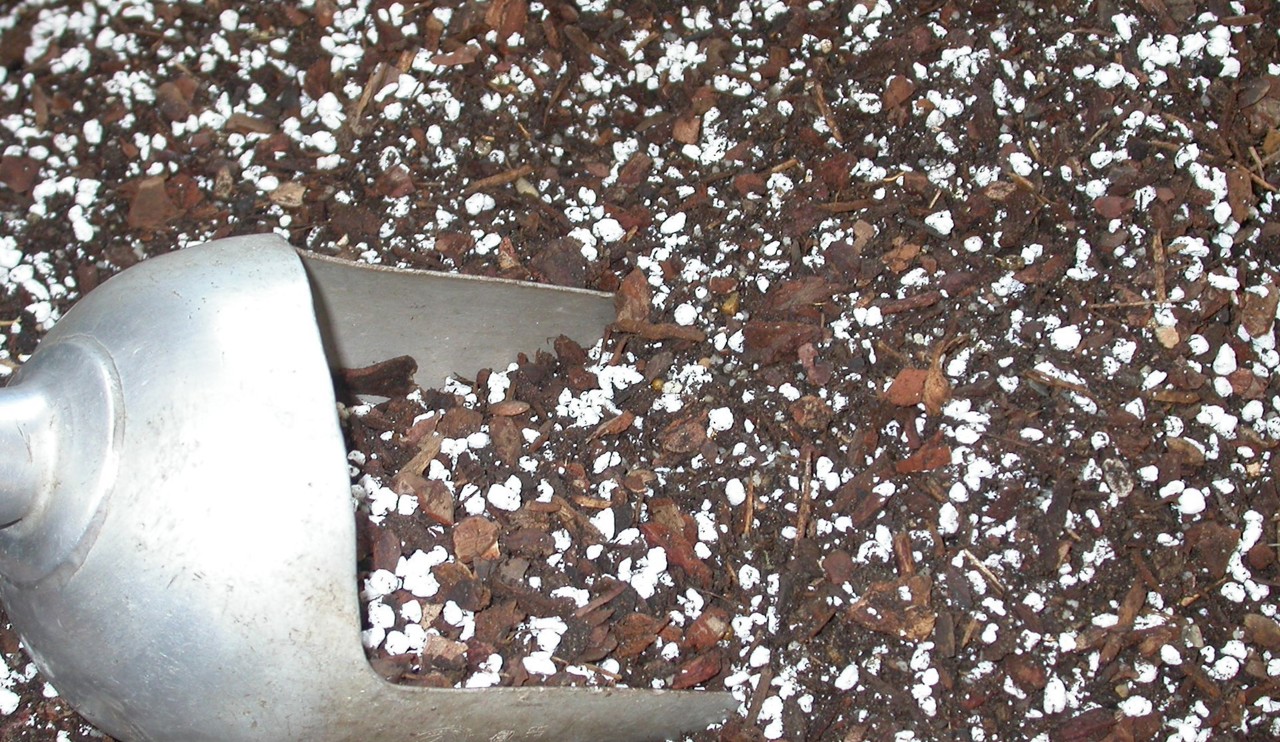
A potting mix containing bark and perlite
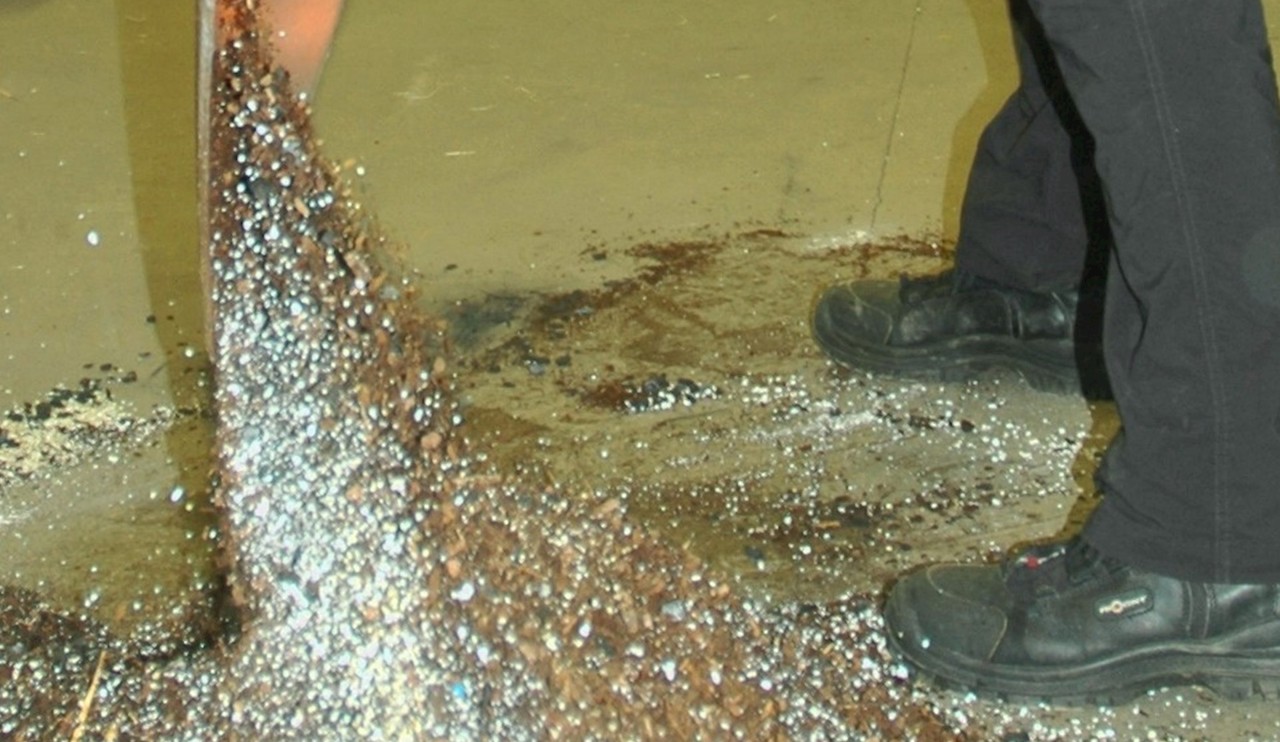
Mixing compost
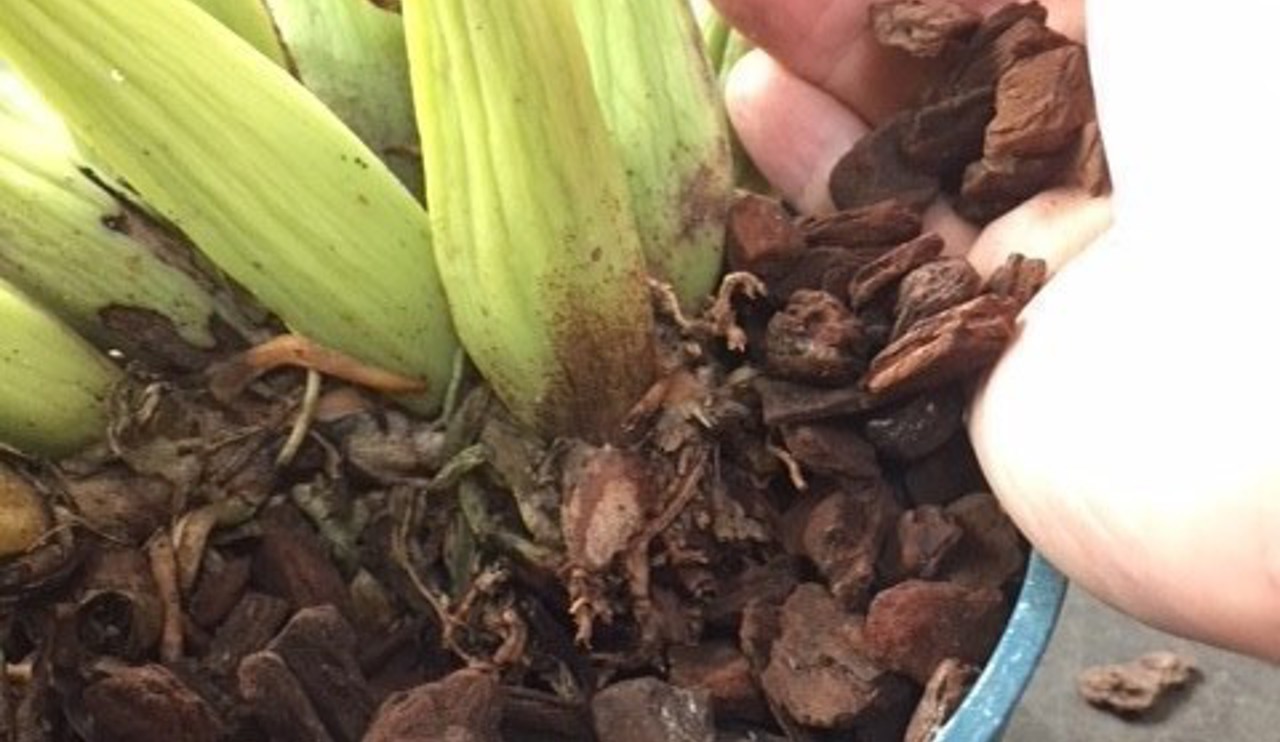
Potting orchids using bark.
Discover more
Botanics Recommends
-
Explore our range of unique gifts and more. Every purchase supports the Garden.
-
Explore our unique venues, suitable for every occasion
-
Discover a range of books inspired by the RBGE's work and collections
-
Cultivate your curiosity with our programme of courses for all ages and interests.

